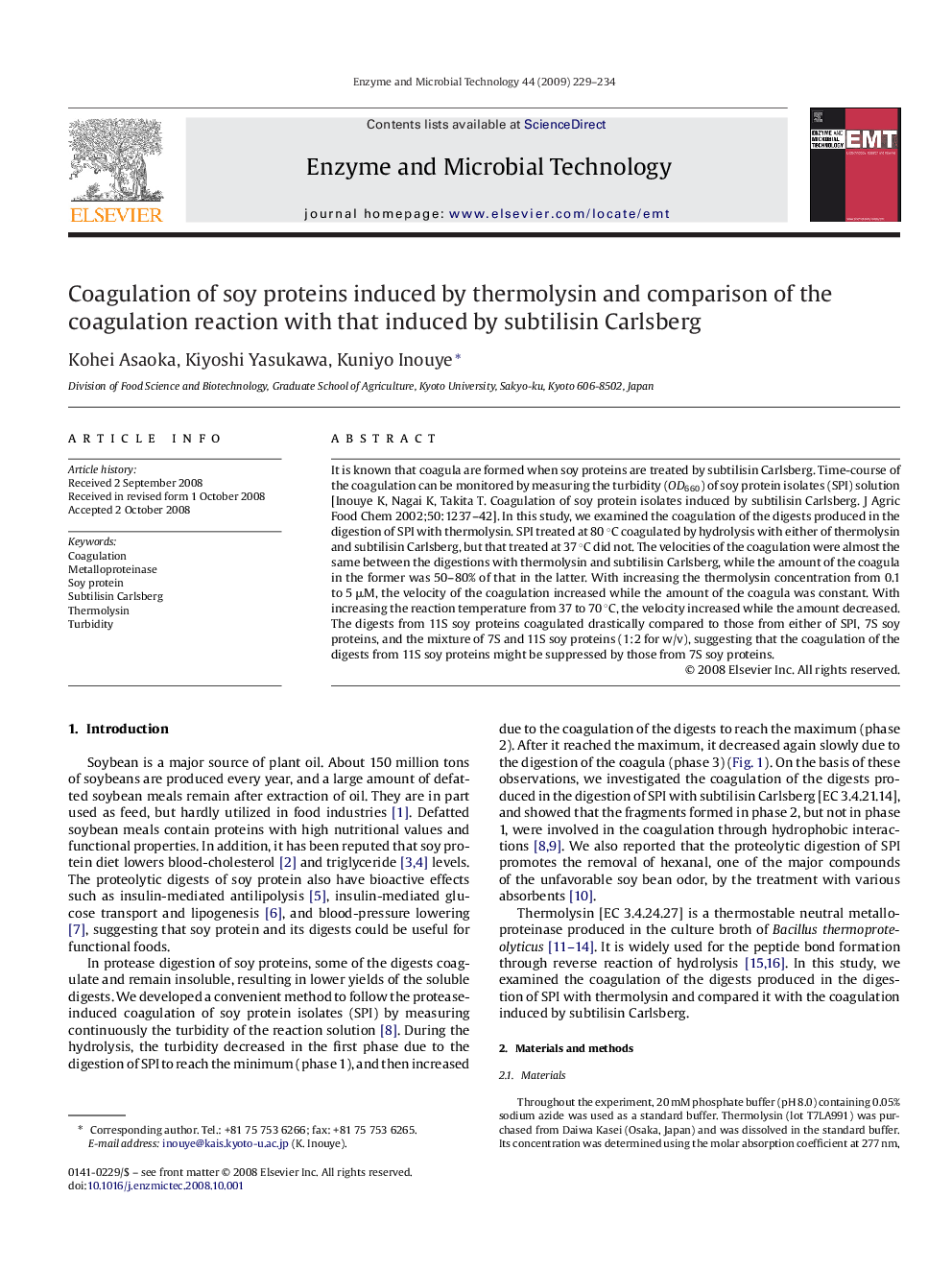| Article ID | Journal | Published Year | Pages | File Type |
|---|---|---|---|---|
| 17599 | Enzyme and Microbial Technology | 2009 | 6 Pages |
It is known that coagula are formed when soy proteins are treated by subtilisin Carlsberg. Time-course of the coagulation can be monitored by measuring the turbidity (OD660) of soy protein isolates (SPI) solution [Inouye K, Nagai K, Takita T. Coagulation of soy protein isolates induced by subtilisin Carlsberg. J Agric Food Chem 2002;50:1237–42]. In this study, we examined the coagulation of the digests produced in the digestion of SPI with thermolysin. SPI treated at 80 °C coagulated by hydrolysis with either of thermolysin and subtilisin Carlsberg, but that treated at 37 °C did not. The velocities of the coagulation were almost the same between the digestions with thermolysin and subtilisin Carlsberg, while the amount of the coagula in the former was 50–80% of that in the latter. With increasing the thermolysin concentration from 0.1 to 5 μM, the velocity of the coagulation increased while the amount of the coagula was constant. With increasing the reaction temperature from 37 to 70 °C, the velocity increased while the amount decreased. The digests from 11S soy proteins coagulated drastically compared to those from either of SPI, 7S soy proteins, and the mixture of 7S and 11S soy proteins (1:2 for w/v), suggesting that the coagulation of the digests from 11S soy proteins might be suppressed by those from 7S soy proteins.
